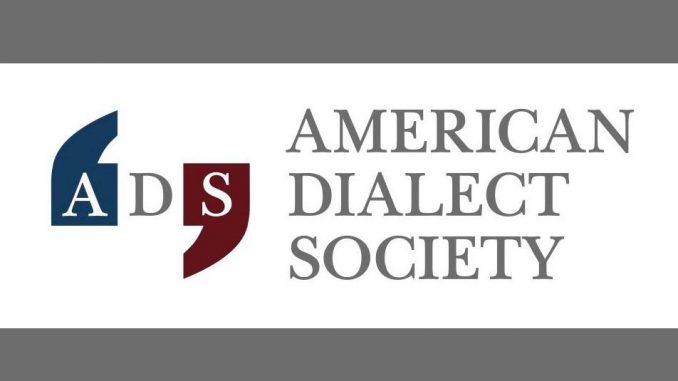
Die American Dialect Society hat sich bei ihrer 33. jährlichen Wahl zum Wort des Jahres für die Endung „-ussy“ entschieden. Mehr als zweihundert Mitglieder nahmen persönlich oder virtuell an den Beratungen und der Abstimmung teil, die im Rahmen der Jahrestagung der Gesellschaft in Denver (Colorado) durchgeführt wurden.
Den Vorsitz bei der Abstimmung am 6. Januar 2022 führte Ben Zimmer, Vorsitzender des ADS-Ausschusses für neue Wörter und Sprachkolumnist beim Wall Street Journal.
„Die Wahl des Suffixes -ussy unterstreicht, wie beliebt kreative Wortneuschöpfungen in Online-Diensten wie TikTok sind“, sagte Zimmer. „Die spielerisch gebildete Nachsilbe baut auf dem Wort Pussy auf und wird zur Bildung neuer Slangausdrücke benutzt. Diese Methode wurde in letzter Zeit auf Social-Media-Seiten und anderswo so produktiv eingesetzt, dass man sie als -ussification bezeichnen kann.“
Der Ausdruck „Wort des Jahres“ wird von der ADS weitreichend interpretiert, sodass er nicht nur Wörter, sondern auch Phrasen, Wortverbindungen und Affixe umfasst. Die Wortkandidaten müssen nicht unbedingt neu sein, aber sie sollten im abgelaufenen Jahr in besonders auffälliger Weise hervorgetreten sein. Nicht zum ersten Mal wurde ein Affix zum Wort des Jahres gekürt. Schon 1998 fiel die Wahl auf die Vorsilbe e– (wie in email).
Nach Angaben der ADS ist die Aktion die älteste derartige Wahl überhaupt* und die einzige, die nicht mit kommerziellen Interessen verknüpft ist.
Mitglieder der traditionsreichen und schon 133 Jahre alten ADS sind Sprachwissenschaftler, Lexikografen, Etymologen, Grammatiker, Historiker, Forscher, Schriftsteller, Redakteure, Studenten und unabhängige Forscher.
Die Wahl der Wörter des Jahres sei nicht dazu gedacht, Wortneuschöpfungen eine Art offiziellen Segen zu erteilen, betont die ADS. Die Aktion solle vielmehr mit Humor betrachtet werden. Man wolle damit nur zeigen, dass Sprachwandel „normal, fortlaufend und unterhaltsam“ sei, wie es in einer Pressemitteilung heißt.
(* Anmerkung von UEPO.de: Die Behauptung, dass die ADS die älteste Wahl zum Wort des Jahres durchführt, ist nachweislich falsch. Die Gesellschaft für deutsche Sprache (GfdS) kürt schon 13 Jahre länger die Wörter des Jahres, nämlich seit 1977 regelmäßig und davor schon 1971 einmalig. Die Wahl für das Jahr 2022 war für die GfdS die 46. in Folge, für die ADS war es erst die 33. Wahl. Die erste amerikanische Veranstaltung dieser Art fand 1990 statt.)
*
American Dialect Society Selects “-ussy” as 2022 Word of the Year
Raw vote totals and percentages of the vote are given after each nomination. In cases requiring a runoff, two figures are given. Winners are indicated by an asterisk.
Word of the year
* -ussy: suffix from “pussy” (as in “bussy” = “boy pussy,” now humorously attached to many words); also -ussification: the process of creating new blended words with the -ussy suffix 108
- Dark Brandon: sinister, powerful alter ego of Joe Biden (play on “Let’s Go Brandon”) 19
- quiet quitting: doing no more than the minimum required for a job 32
- rizz: effortless attractiveness or style (short for “charisma”) 11
- Slava Ukraini: “Glory to Ukraine!” (said in solidarity with Ukrainian resistance) 25
- special military operation: Russian designation for invasion of Ukraine 23
Most useful / most likely to succeed
* quiet quitting: doing no more than the minimum required for a job 90/115
- climate criminal: celebrity who flies excessively via private jet 12
- longtermism: ethical position that prioritizes improving the long-term future 5
- nepo baby: celebrity who is the child of a celebrity 27
- rizz: effortless attractiveness or style (short for “charisma”) 84/92
Political word of the year
* Dark Brandon: sinister, powerful alter ego of Joe Biden (play on “Let’s Go Brandon”) 110
- Dobbs: Supreme Court decision reversing abortion rights (as in “post-Dobbs”) 38
- pink trickle/splash: result of Republican “red wave” in midterms not materializing 19
- Slava Ukraini: “Glory to Ukraine!” (said in solidarity with Ukrainian resistance) 18
- Woman, Life, Freedom: rallying cry for women’s rights in Iran and elsewhere 24
Digital word of the year
* -dle: suffix for Wordle-like games (Heardle, Absurdle, Foodle, Worldle, Redactle, etc.) 84/118
- BFFR: initialism for “be fucking for real” 14
- chief twit: self-designation of Elon Musk after acquiring Twitter 4
- chronically online: spending so much time online that it warps one’s sense of reality 30
- crypto rug pull: scam in which a fraudulent development team pumps a cryptocurrency token before disappearing with the funds, leaving investors with a valueless asset 8
- touch grass: go outside (antidote to spending too much time online) 64/87
- -verse: online world, as in Metaverse (Facebook’s VR platform) or Fediverse (federated servers on Mastodon) 8
Informal word of the year
* it’s giving (X): description of something exuding a particular vibe or energy (from drag culture) 94/126
- dickriding: currying favor or sucking up to someone 22
- (the) ick: feeling of disgust about one’s date 8
- menty b: mental breakdown 29
- rizz: effortless attractiveness or style (short for “charisma”) 67/84
Most creative word of the year
* -ussy: suffix from “pussy” (as in “bussy” = “boy pussy,” now humorously attached to many words) 163
- blorbo (from my shows): beloved fictional character from television or other media 9
- -dle: suffix for Wordle-like games (Heardle, Absurdle, Foodle, Worldle, Redactle, etc.) 24
- moid/foid: derogatory terms for men and women in incel culture 0
- short king: positive or affectionate term for a man of modest stature 18
Euphemism of the year
* special military operation: Russian designation for invasion of Ukraine 50/121
- camping: access to abortion, as used in informal networks circumventing state anti-abortion laws 37
- diverse-owned: of a business, owned by members of historically underrepresented groups 7
- leg booty: algospeak substitution for LGBT 52/86
- pronouns: trans/nonbinary gender identities, as used in transphobic rhetoric to mock pronoun choice 31
- résumé embellishment: lying about one’s accomplishments 32
Snowclone / phrasal template of the year
* not X: ironic framing device expressing an attitude of mock horror or incredulity 82/125
- if I text you X, it means Y: explaining how to interpret an emoji or series of emojis 9
- #IStandWithX: expression of solidarity 26
- it’s the X for me: singling out a notable or funny aspect of something, or finding fault with someone 26
- she’s/he’s a 10, but X: pointing out a negative or quirky quality of someone 28
- X hits different: describing an experience that is affecting in a meaningful way 41/79
Emoji of the year
* [skull]: expressing figurative death (from laughter, frustration, etc.) 72/108
- [melting face]: expressing embarrassment or dread 67/90
- [saluting face]: sign of respect or solidarity 9
- [dotted line face]: feeling of invisibility 8
- [red flag]: signaling danger or problems 2
- [colored boxes]: for Wordle results 45
The American Dialect Society
Founded in 1889, the American Dialect Society is dedicated to the study of the English language in North America, and of other languages, or dialects of other languages, influencing it or influenced by it. ADS members are linguists, lexicographers, etymologists, historians, grammarians, academics, editors, writers, and independent scholars in the fields of English, foreign languages, and other disciplines. The society also publishes the quarterly journal American Speech.
The American Dialect Society began choosing Words of the Year in 1990. Winners are listed below. A full account of the previous choices may be found on the American Dialect Society’s website, www.americandialect.org.
Not all words chosen for a particular year are destined to become permanent additions to the vocabulary. Y2K in 1999 and chad in 2000 are examples of prominent terms that faded quickly. An explanation of which words are likely to succeed may be found in Predicting New Words: The Secrets of Their Success by Allan Metcalf.
rs
